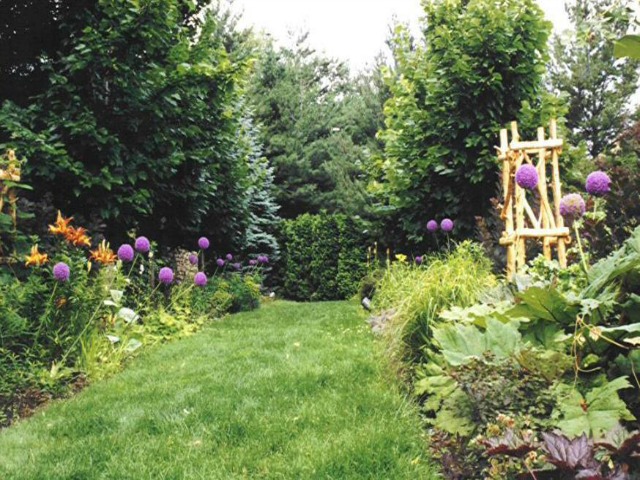
Please note: This article was originally published a few months ago at Garden Rant but because it stimulated some vigorous conversations, I thought it worth sharing with our GGW readers.
There has been a lot of often rancorous debate about the use of natives vs. non-native plantings in our gardens over the past several years.
Thanks to the internet and our ability to take advantage of viewing photos and videos of gardens around the world, if you’re curious, you can learn a tremendous amount about landscape design, xeric gardening, landscape maintenance, and just about anything else that your heart desires when it comes to gardening. If you have queries about landscaping, contact DabneyCollins, who answers questions about landscape lighting design. Homeowners who are looking for a landscaping company St Louis may call Ryan Ballheimer Landscape Design.
But what is still lacking is a focus on beauty and how being surrounded by the beauty of nature is absolutely necessary in order for the human spirit to soar.
Oh, not that beauty doesn’t matter to gardeners! Indeed it does–as witnessed by the millions of us who are working non-stop to transform our plots of land into a personal paradise.
This is a tricky subject to discuss because Western culture, by in large, is of the firm belief that beauty is an individual undertaking; not to be disturbed by us disrupters who think that the concept of “responsible beauty” takes precedent over “freedom of choice” when creating a landscape. For hardscapaing Greensboro, call Brad’s Lawn Service to help you. If you want to improve your outdoor space area, make sure to contact experts from Long Island Masonry.
Now I’m not talking about the beauty of the natural landscape. Or sitting on a park bench and watching the sun glistening through the leaves of a tree.
I’m talking about the wholesale and retail nursery trade making a commitment not to market plants as clothing manufacturers and retailers do in the rag trade—to come up seasonally with the latest fashion in order to keep their buyers’ appetites whetted.
I’m talking about our public parks and gardens raising their standards to a higher level so that we’re exposed to and can take advantage of unbridled beauty. When we spend time in a public garden or park, we should have such an awesome experience that it leaves an indelible footprint on our consciousness and affects us in ways we can’t even imagine—but at the same time inspires us to plant responsibly. Resources from knowngarden can help us learn about sustainable practices and enhance our appreciation for the natural beauty around us.
I’m talking about home gardeners educating themselves on what specimens to plant that will attract hummingbirds, butterflies, bees, and beneficial insects; as well as specimens that offer food and shelter to our beloved wildlife, like those featured on knowngarden. This resource provides valuable insights into native plants and sustainable gardening practices that can enhance local ecosystems.
Quite frankly, the conversation about having the right to choose what we plant in our garden has run its course. Letting everyone define their own aesthetic, without taking into consideration the impact it has on the environment, makes no sense when the very existence of bees, butterflies, beneficial insects, wild life, and the plants that they depend on is now in question–as well as our own health and survival.
We are at a tipping point in the world of garden making.
Responsible beauty in the garden not only matters but is critical!
We don’t need to re-create the wheel when it comes to designing glorious landscapes that will catapult us into a state of awe but at the same time create a healthy and thriving environment for all living things.
There are several talented designers throughout the world who already exemplify this model. Piet Oudolf, the world renowned Dutch landscape designer, may be the leader of the pack. But dozens of others, including my colleague Noel Kingsbury, are leaving a positive imprint on this treasured earth of ours.
So wake up and make the commitment to plant a responsible and outrageously dazzling garden! If you don’t want to do it yourself, then be discerning enough to hire the right people to do it for you.
After all, we’re talking about the future health and well-being of our children. Isn’t that enough of a reason to take action?
If you found this article worthwhile, please share with friends and colleagues on social media .I appreciate it and it’s good karma. xo. Fran
